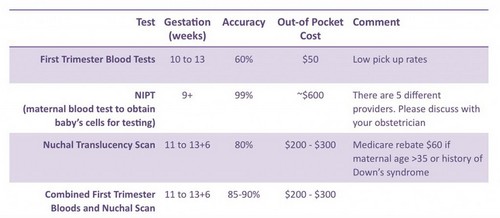Sometimes it may feel easier not to talk about your endometriosis with those close to you; perhaps because you do not want to burden them with your health problems, or you feel they won’t understand.
However, if your family, friend or partner understands more about what you are going through, especially in the long-term, it can really make a positive difference to you and your relationship.
Explaining endometriosis, and how it affects you, can be difficult, and the decision to tell people close to you is a very personal one.
Talking with family & friends about endometriosis
It helps to think about how you will describe the disease and its impact, and whether you think the person will be able to understand and be sympathetic to your situation.
Explaining endometriosis
- First, choose a time that is good for them and you, so they are free from distractions and able to take in what you are telling them
- Start by explaining the basic physical changes of endometriosis – it may help to rehearse it in your head first
- Offer them written resources to read in their own time, rather than overwhelm them with too much information at once
- Talk to them about how your experience of endometriosis affects you personally, both physically and emotionally
- Go into as much, or as little, detail as both you, and they, feel comfortable with.
Depending upon the relationship you have with the person you are talking to, and their own personality, they may need different levels of information, and they may respond in various ways.
For example, they may be upset you are suffering, they may not initially understand the magnitude of the condition, or they might feel uncomfortable hearing about a personal health problem. They may already know someone who has endometriosis and understand more of your journey than you expected.

Communicating with a partner about endometriosis
Talking about endometriosis with your partner may be difficult, but it can also be a relief to have someone close to you understand what you are going through, and support you along the way. Taking your partner to medical appointments can be a good way of increasing their understanding of your condition and the symptoms you are experiencing.
Let your partner know how they can help and support you when you are in pain.
While not every couple will find it easy, one study of male partners of women with endometriosis found going through the experience brought them closer as a couple 1.
“Since diagnosis I have been able to support her with greater understanding. Attending a support group has helped me to feel supportive.”
“Infertility was a huge growth period for our relationship.”
“Endometriosis made our relationship stronger…we are closer now.”
However, some male partners often feel a sense of powerlessness.
“I worry about how she will feel at night and feel helpless to see her in pain, not being able to do anything about it.”
“Seeing the physical and emotional trauma that my wife had to endure through her years of surgery and procedures was particularly hard to take.”
It is important to try to include your partner in your experiences of endometriosis as much as possible, as this will help you to feel more supported and reduce the chances of your partner feeling excluded.
Sex
When experiencing chronic pain and the physical effects of having an illness, it is common for a woman’s sexual desire (libido) to suffer. Sometimes reluctance to engage in sexual intimacy can occur on both sides, as partners may be fearful of hurting their partner or worried that raising the issue will be upsetting.
Rather than ignoring the problem, it’s better for the relationship and future sexual experiences to discuss the physiological and emotional changes that result from endometriosis, and the expectations you have of each other. Seek help from a psychologist or relationship counsellor if necessary.
Painful sex
Painful sex (also known as dyspareunia) is common when endometriosis affects the tissue behind the uterus at the top of the vagina. Experiencing pain with sex not only has an effect on libido but can also lead to difficulties in expression of sexuality as an individual and as a couple. If you are experiencing pain during sex, speak to your doctor or gynaecologist about possible treatments.
Libido
Libido or ‘sex drive’, varies from woman to woman and can be influenced by a range of different factors. Sexual desire changes depending on your health, stress levels, mood, and satisfaction with your relationship and what else is happening in your life. You may have a high level of sexual desire or a low level of desire; neither level is right or wrong as sexual desire is a very individual thing.
For women with endometriosis, a range of additional factors enters the mix. Between chronic pain, painful sex, taking medication and hormonal therapies, undergoing surgery and dealing with a variety of emotional issues, it is little wonder that sexual desire is affected.



